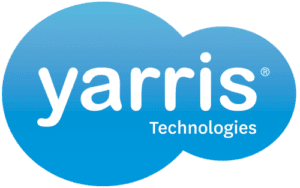Legal Department Operations Confirmed as Key Focus for In-House Teams
The latest Legal Department Operations (LDO) Index from Thomson Reuters confirms that a large majority of legal departments are experiencing an increased volume of legal work.
70% of respondents reported an increasing workload. That’s up 5% on last year. 24% report no change and very few report any decrease, presenting high workloads for corporate legal teams as a near universal reality.
Most legal teams are responding by focusing efficiency, technology, strategic enablement and risk management. These activities reflect the clear part played by legal operations.
In-house legal operations professionals are tasked with ensuring the effective operations of corporate legal departments. A legal operations manager may oversee financial management, streamlining operations, contract management, and business and strategic matters, all to improve the overall service of the legal team.
The data for the LDO Index report consists of responses from an online survey of legal department operations professionals in the US, conducted in June and July 2023. The survey included 71 respondents, representing companies with annual gross revenues ranging from less than $1 billion to over $10 billion.
Modern in-house legal services
Declining budgets and headcounts are putting a strain on the ability of legal teams to absorb a greater share of an increasingly heavy legal workload. Nearly two-thirds of legal teams report that total department budgets are either flat or decreasing.
Many in-house legal departments are at maximum capacity. Only 35% report an increase in the number of in-house lawyers and the percentage of departments increasing their in-house workload share reduced to 43% compared to 52% last year. As a result, a significant number of legal departments are relying more on external resources and legal technology.
Perhaps as a reflection, “high priority” items on the agenda for legal professionals relate to controlling outside legal spend, improving the use of technology and focusing on data security — all of which fall under the department’s legal operations function.
The implications of the growing volume of legal work
As legal departments cope with the increasing volume of work, three top concerns have emerged: spending, technology and data security.
Controlling costs
According to the LDO Index, 78% of legal teams say controlling costs is a high priority. Key measures include the general enforcement of billing guidelines, regular review of budgets versus actual spending on high-cost matters and leveraging technology to streamline workflows and time consuming manual processes.
Rise of legal technology
72% of respondents identify using technology to simplify workflow as a high priority. A majority of legal departments have increased their use of legal technology tools in the past year, even though most report flat or decreasing budgets dedicated to legal tech. Despite this prioritization, 90% report only slow to moderate progress in adopting new technology.
While a vast majority have adopted solutions such as e-billing technologies and e-signature solutions, there is a delay in the uptake of some advanced technologies. For many in-house legal departments, the direct impact of generative AI remains largely hypothetical. Only about 4% of corporate legal teams report they are currently using generative AI for department operations.
Data security
LDO professionals are increasingly concerned about threats posed by data security issues. 66% of respondents report focusing on internal data security as a high priority. Risk and compliance concerns are now the top challenge for corporate general counsel globally. With better data accuracy and transparency, organizations can make informed decisions about how they provide the best service to their clients.
The evolution of legal operations
In the last ten years, the focus of legal operations has shifted. Before, the focus was on risk management and reducing outside counsel costs. Now, legal ops is an integrated, trusted business partner to the entire organization. Teams are relied on to identify opportunities for automated processes and strategic use of external vendors, ensuring they reach their fullest potential.
Legal ops leaders take the a data-driven approach to confronting rising challenges within in-house legal teams. Their role in corporate legal departments shows no sign of shrinking, rather their integral part in ensuring effective legal function is poised to grow. They are in the best position to deliver innovative, impactful results for both their department and their wider business.
How in-house legal operations are changing corporate counsel
The Corporate Legal Operations Consortium (CLOC) introduced the legal operations role as an industry-recognized profession. It describes legal ops as a set of business processes, activities and the professionals that enable legal departments to serve their clients more effectively through the application of business and technical practices to the delivery of legal services.
The role of legal operations will look different depending on the needs and preferences of each organization. With professional backgrounds spanning marketing, data analytics, finance, learning and development, and more, legal ops allow legal teams to more effectively manage risks, monitor compliance, implement the right technological tools and deliver more value company-wide.
While there isn’t any strict limit to what legal operations can do, the CLOC has set out 12 key functions of corporate legal operations teams.
12 functions of a legal operations specialist
1. Business Intelligence:
Many legal departments struggle to substantiate their strategic contribution to the organization. Part of the legal operations’ role is gathering and managing data to provide insight into the effectiveness of the in-house counsel. A legal operations analyst collects and analyses data, ensures it is stored securely and creates performance reports. These legal data analytics can then be used to support strategic planning and operational improvements.
2. Financial Management:
In-house legal ops teams develop and manage the legal department’s budget, implementing systems to forecast expenses and monitor actual spend. They maximise your resources through sound financial management to identify cost-saving opportunities and areas where resources can be better allocated.
3. Firm and Vendor Management:
The legal operations team is responsible for vendor management, selecting and onboarding external legal organizations, maintaining strong relationships with vendors and addressing any issues or disputes. They conduct contract management and negotiate terms and fees with legal vendors to ensure value for money. From here, they set performance metrics and regularly review vendor performance.
4. Information Governance
Legal ops teams develop and implement programs to ensure the entire company is compliant with laws and regulations. They create policies to manage legal and regulatory risks, and conduct training sessions for employees to insure they understand and adhere to requirements. By regularly monitoring compliance and managing audits to identify issues, they manage incidents and administer corrective actions.
5. Knowledge Management:
With the assistance of a legal operations team, you will tap the knowledge and capability of your entire company. By developing and maintaining a repository of legal documents, templates and best business and technical practices, the legal ops team facilitates knowledge hubs across the organization. Collaboration tools enable teams to work together more effectively.
6. Organization Optimization and Health
Legal operations bring a comprehensive overall vision to your department. With a hiring process that is objective and fair, you will design diverse, driven, and high-impact teams. Legal ops professionals identify potential leaders and create a pipeline of talent by investing in mentoring and succession, ultimately building your most effective legal team.
7. Practice Operations
Through focused practice operations, your in-house lawyers will be able to focus on highest-value tasks. Without being distracted by operational duties and projects, they will have more time to practice law. Legal operations specialists understand current challenges and identify opportunities to streamline inefficiencies. They help create flexible, efficient teams trained and experienced in practice specific operations including contracts management, eDiscovery and IP management.
8. Project/Program Management:
Corporate general counsel often lack specialized project management skills. This makes it challenging to implement company-wide initiatives. Legal operations leaders design and actualize successful department-wide and company-wide programs. They define goals, timelines, budgets, and resources, making certain projects are completed on time and within budget. Without compromising the quality or volume of ongoing work, legal ops teams track progress, mitigate risks and ensure effective communication among stakeholders.
9. Service Delivery Models
With legal operations teams delivering strong vendor management, they create a complementary ecosystem of law firms and alternative legal service providers. Legal ops taps the best expertise and experience across both your in-house legal team, law firms and external legal services. Break your case work into distinct connected elements and route each component to the vendor best suited to deliver the desired outcome at the best cost.
10. Strategic Planning:
Legal operations allows teams to set strategic goals that serve the needs of your company’s legal department and the overall business. By taking a holistic approach to planning, short and mid-term actions are connected to long-term priorities. An in-house legal ops team continuously evaluates and refines strategies to ensure alignment with changing business needs.
11. Technology:
Technology has become a fundamental tool in modern in-house legal teams. The legal operations team is tasked with keeping up with evolving legal tech trends and identifying the needs of the department. They select appropriate solutions and manage the implementation process. To ensure new tools are integrated optimally, they deliver ongoing training, support and maintenance.
12. Training and Development
Legal teams have an opportunity to activate and engage new team members by enhancing the onboarding process for new hires. With high-quality, targeted training and professional development opportunities, legal departments can nurture a strong sense of culture. The legal ops team is instrumental in designing and implementing an effective new hire experience. Set up your employees for success and equip your entire legal team with skills and knowledge in emerging high-value disciplines.
Embrace the innovation of legal operations
Legal operations is playing an increasingly vital role in today’s corporate legal teams. There’s no doubt that the responsibilities of these positions are set to expand. The challenge will be to harness the legal operations resources needed to consistently deliver higher value for both the department and the broader enterprise.
Key among these resources will be:
- Managing vital data about outside counsel spend and performance.
- Developing new metrics that focus on value-added contributions for both outside counsel and in-house matters.
- Improving how you manage outside counsel spending and understanding Alternative Fee Arrangements (AFAs).
- Driving the adoption of technology solutions to tackle departmental challenges.
- Staying on top of rapidly evolving tech options, such as generative AI.
- Expanding your toolkit of key metrics to assess the department’s performance, effectiveness and ability to support and protect the business.
Make the most of legal operations with Dazychain
In-house legal teams that prioritise legal operations will be best positioned to navigate the increasingly digital and data-driven legal landscape. Whether it’s managing corporate records, adopting a strategic business approach or streamlining legal processes, Dazychain is designed to optimize your legal department’s workload. Schedule a demo today.
Interested in exploring Dazychain’s solutions?
Table Of Contents:
- Modern in-house legal services
- The implications of the growing volume of legal work
- The evolution of legal operations
- How in-house legal operations are changing corporate counsel
- 12 functions of a legal operations specialist
- Embrace the innovation of legal operations
- Make the most of legal operations with Dazychain









